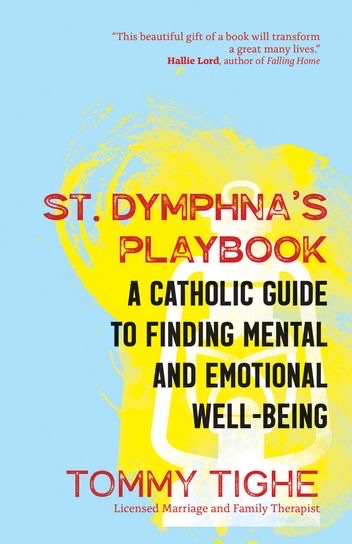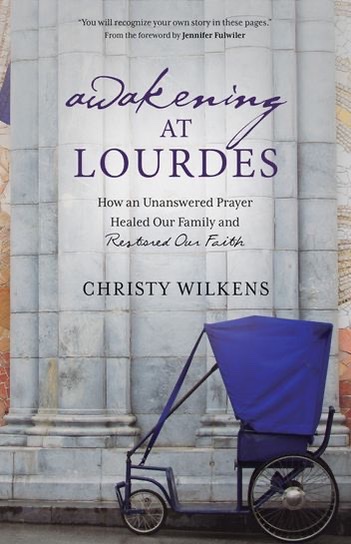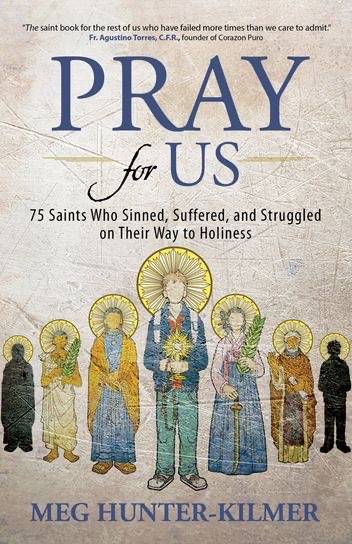This is my column that appears in this week’s print edition of The Catholic Post.
Like most people, I am grateful to live in a time when mental health issues are discussed openly. In decades past, these topics were often minimized or stigmatized. And in some religious circles, mental health struggles could be overly spiritualized, and sometimes prayer was presented as the only solution.
At the same time, right now there is such a plethora of mental health resources and voices—especially on social media—that it’s challenging to distinguish the helpful from the less than helpful.
Sometimes, these voices—professionals or non-professionals—can pathologize nearly everything and everyone, even relatively normal struggles or relationships; they can promote a one-size-fits-all approach to all mental health issues; and they can be unreceptive or even hostile to sincere faith being a major element in a person’s integrated and well-ordered life. It can take a lot of effort to sift through the chaff for the wheat.
That’s why I am so grateful to Tommy Tighe, a licensed marriage and family therapist, for writing St. Dymphna’s Playbook: A Catholic Guide to Finding Mental and Emotional Well-Being,” and providing a much-needed Catholic perspective.
Tighe wrote St. Dymphna’s Playbook “to fill the void of Catholic conversations about mental health.”
St. Dymphna, for those who do not know her, is the saint who’s often invoked for those with mental health issues, and for their caregivers and loved ones. (Tighe’s podcast is also titled “St. Dymphna’s Playbook.”)
“God wills that everyone be saved, not just from sin and evil but also from depression, anxiety, past trauma, difficult relationships, heartbreak, addiction, and everything else that brings us pain, suffering, and separation from the love and peace God so desperately want to give us,” Tighe writes in the introduction.
St. Dymphna’s Playbook is divided into five sections: Depression, Anxiety, Trauma, Relationships, and Grief. Each section has sub-chapters that cover one aspect of the subject: for instance, “Fatigue” and “Irritability” are two of the chapters under “Depression.” “Manipulative Relationships” is one chapter in the “Relationships” section.
Each chapter has a phrase that echoes John 11:3, when Jesus’ disciples report to him about Lazarus, “Lord, the one you love is sick.”
So, for instance, in the Anxiety section, one chapter is titled: “Obsessive-Compulsive Disorder: The One You Love is Battling Intrusive Thoughts.” And a chapter of the Depression Section is “Irritability: Lord, The One You Love is Annoyed.”
Each section includes several aspects of a mental health disorder, such as a description of what the symptoms or diagnosis actually is; practical, healthy coping skills everyone can try; a brief exploration of what our faith and the saints have to say about the experience; and a list of key points in summary.
One of my favorite features is “What the Saints Say About …” . This chapter section profiles a saint who either did or may have suffered from that condition. In the Anhedonia (lack of feeling) chapter under Depression, Tighe discusses St. Mother Teresa and her decades-long struggle with spiritual darkness. Tighe also writes beautifully about the life of Venerable Matt Talbot, an early 20th century Irishman who overcame alcoholism and who said, “It’s as hard to give up the drink as it is to raise the dead to life again.”
St. Dymphna’s Playbook is not a self-help book or a textbook, or a prescription for those struggling. It’s a worthwhile resource from a competent, Catholic source, and from a healthy Catholic perspective.
“While there are coping skills within this book for the various mental health experiences we may be going through, this book doesn’t intend to solve all our problems.” Tighe writes. “My hope is that this book provides the impetus for our Catholic Church to bring our mental health struggles out into the open without stigma and with a plan for moving forward.”
Companion reads:
Two recently-published books are excellent complementary reads with St. Dymphna’s Playbook.
In Awakening at Lourdes: How an Unanswered Prayer Healed Our Family & Restored Our Faith, Christy Wilkens writes expressively about her sixth child’s struggle with complex medical issues, her spiritual and emotional journey; and how a pilgrimage to Lourdes transformed her life.
Awakening at Lourdes is fascinating even just as a detailed account of what happens on a Lourdes pilgrimage, But more than that, it’s a profoundly personal journey of a deepening faith, and a reminder to all that “None of us is meant to endure the trials of this life alone.”
Meg Hunter-Kilmer’s newest book, Pray for Us: 75 Saints Who Sinned, Suffered, and Struggled on Their Way to Holiness might be quickly described as a “grown-up” version of her excellent Saints Around the World, which she wrote mostly for younger readers.
In Pray for Us, Hunter-Kilmer writes in more detail about saints whose lives were “complicated” in various ways, but in such an engaging way that it’s easy to see how many beautiful and unconventional ways there are to be a saint and live out a life of faith.
Pray for Us includes more detail about the lives of a wide variety of saints, with sections including “Saints Who Defied Expectations,” Saints With Difficult Families,” “Saints Whose Ruined Plans Open the Way to More Beautiful Things,” “Saints Who Were Failures,” and more.
All three books provide a powerful reminder for Catholics: the knowledge that we are not alone in our struggles and sufferings.
As Tighe writes, it’s “less about having an answer for everything and more about trying to foster a Catholic community where we suffer together, unafraid to walk forward with our sisters and brothers through their valley of tears.… You are never alone. Help and hope are always out there.”


